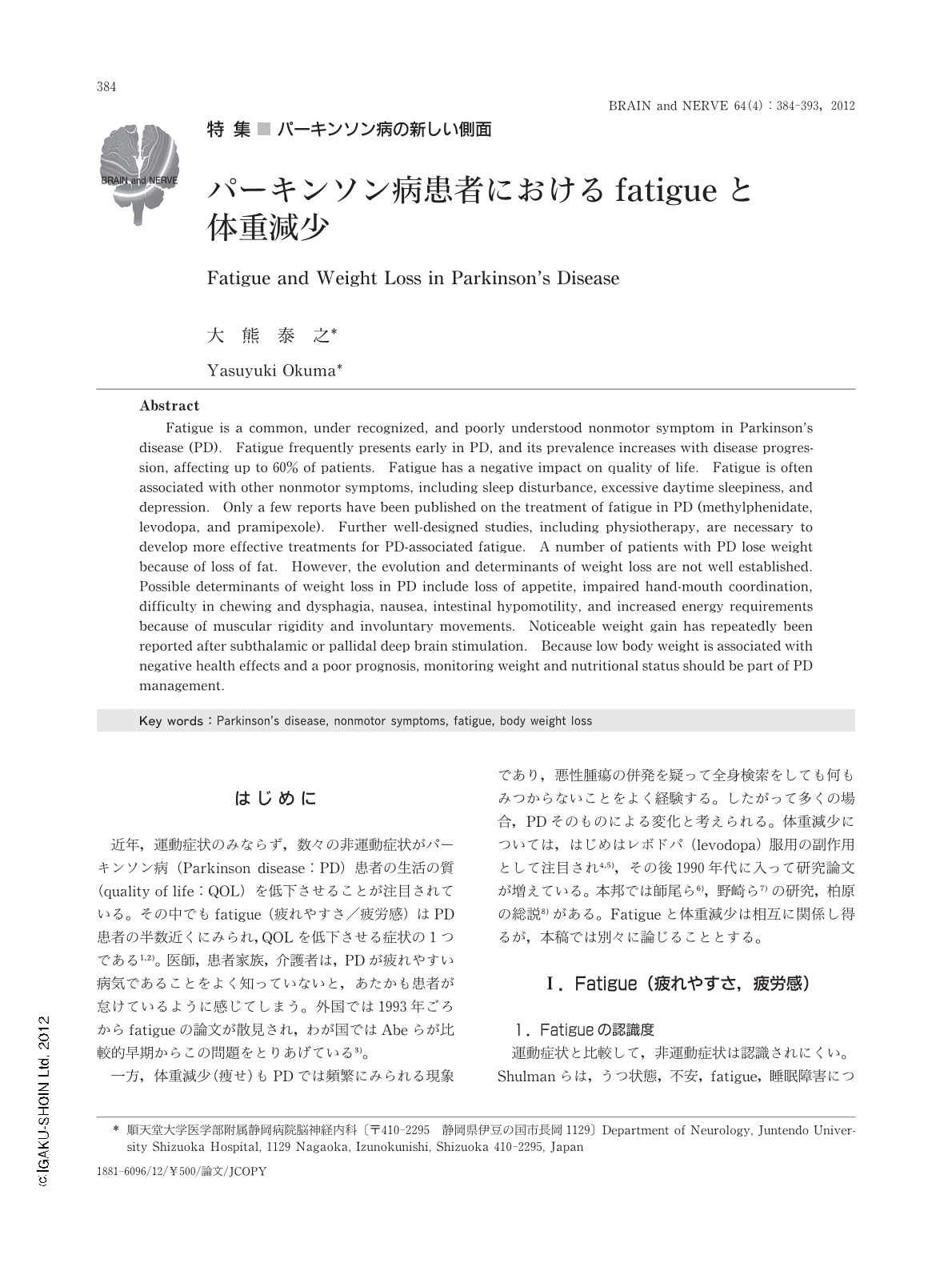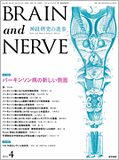Japanese
English
- 有料閲覧
- Abstract 文献概要
- 1ページ目 Look Inside
- 参考文献 Reference
- サイト内被引用 Cited by
はじめに
近年,運動症状のみならず,数々の非運動症状がパーキンソン病(Parkinson disease:PD)患者の生活の質(quality of life:QOL)を低下させることが注目されている。その中でもfatigue(疲れやすさ/疲労感)はPD患者の半数近くにみられ,QOLを低下させる症状の1つである1,2)。医師,患者家族,介護者は,PDが疲れやすい病気であることをよく知っていないと,あたかも患者が怠けているように感じてしまう。外国では1993年ごろからfatigueの論文が散見され,わが国ではAbeらが比較的早期からこの問題をとりあげている3)。
一方,体重減少(痩せ)もPDでは頻繁にみられる現象であり,悪性腫瘍の併発を疑って全身検索をしても何もみつからないことをよく経験する。したがって多くの場合,PDそのものによる変化と考えられる。体重減少については,はじめはレボドパ(levodopa)服用の副作用として注目され4,5),その後1990年代に入って研究論文が増えている。本邦では師尾ら6),野崎ら7)の研究,柏原の総説8)がある。Fatigueと体重減少は相互に関係し得るが,本稿では別々に論じることとする。
Abstract
Fatigue is a common,under recognized,and poorly understood nonmotor symptom in Parkinson's disease (PD). Fatigue frequently presents early in PD,and its prevalence increases with disease progression,affecting up to 60% of patients. Fatigue has a negative impact on quality of life. Fatigue is often associated with other nonmotor symptoms,including sleep disturbance,excessive daytime sleepiness,and depression. Only a few reports have been published on the treatment of fatigue in PD (methylphenidate,levodopa,and pramipexole). Further well-designed studies,including physiotherapy,are necessary to develop more effective treatments for PD-associated fatigue. A number of patients with PD lose weight because of loss of fat. However,the evolution and determinants of weight loss are not well established. Possible determinants of weight loss in PD include loss of appetite,impaired hand-mouth coordination,difficulty in chewing and dysphagia,nausea,intestinal hypomotility,and increased energy requirements because of muscular rigidity and involuntary movements. Noticeable weight gain has repeatedly been reported after subthalamic or pallidal deep brain stimulation. Because low body weight is associated with negative health effects and a poor prognosis,monitoring weight and nutritional status should be part of PD management.

Copyright © 2012, Igaku-Shoin Ltd. All rights reserved.


